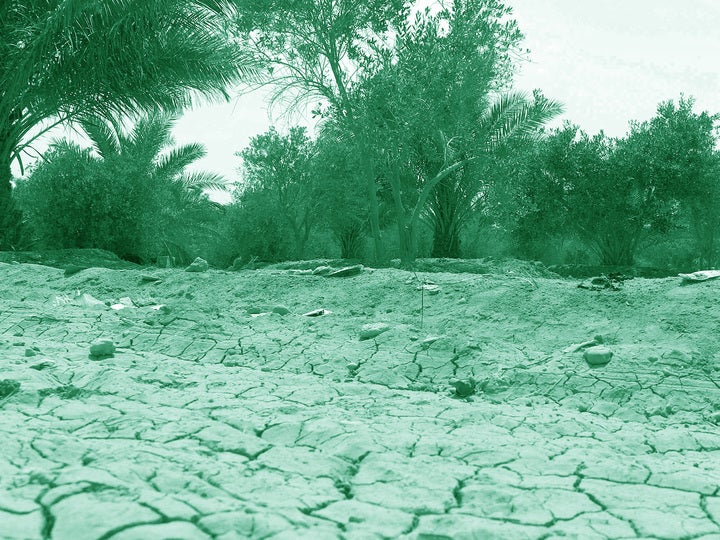What is soil degradation and why is it so important?
Soil degradation is a huge climate issue

Your support helps us to tell the story
From reproductive rights to climate change to Big Tech, The Independent is on the ground when the story is developing. Whether it's investigating the financials of Elon Musk's pro-Trump PAC or producing our latest documentary, 'The A Word', which shines a light on the American women fighting for reproductive rights, we know how important it is to parse out the facts from the messaging.
At such a critical moment in US history, we need reporters on the ground. Your donation allows us to keep sending journalists to speak to both sides of the story.
The Independent is trusted by Americans across the entire political spectrum. And unlike many other quality news outlets, we choose not to lock Americans out of our reporting and analysis with paywalls. We believe quality journalism should be available to everyone, paid for by those who can afford it.
Your support makes all the difference.Soil supports agriculture, wildlife, filters water, and stores carbon. The American farmer and poet Wendell Berry once said: “Soil is the great connector of lives, the source and destination of all. It is the healer and restorer and resurrector, by which disease passes into health, age into youth, death into life.
“Without proper care for it we can have no community, because without proper care for it we can have no life.”
Soil degradation is a huge climate issue that does not get the same public recognition as green issues like rising temperatures, flooding, and air quality.
What is soil degradation?
Soil degradation involves both the physical loss (erosion) and the reduction in quality of topsoil associated with nutrient decline and contamination.
It affects soil quality for agriculture and has implications for the urban environment, pollution, and flooding.
A total of 2.2 million tonnes of topsoil is eroded annually in the UK and over 17% of arable land shows signs of erosion, according to the Environment Agency.
And the Save Soil movement says 52% of the world’s agricultural soil is already dead and 90% of the earth’s soil will be degraded by 2050.
Globally, more than half of all soils are now classified as degraded, with approximately 1.5 billion people living on degraded land, claims the Sustainable Food Trust. This damage, the organisation says, is largely the result of industrial farming practices, over-grazing and global warming and generates an enormous hidden cost to society.
What causes soil degradation?
It can be the result of one or more of several factors. Soil degradation is a natural process but can be caused by human activity such as intensive farming practices like deforestation, overgrazing, intensive cultivation, forest fires, and construction work.
These actions disturb soil and leave it vulnerable to wind and water erosion, which damages the complex systems underneath, says Silvia Pressel, a Natural History Museum researcher in the Algae, Fungi and Plants Division.
“Several practices associated with intensive agriculture, especially tilling, disrupt soil structure,” she said.
“They accelerate surface runoff and soil erosion, loss of organic matter and fertility and disruption in cycles of water, organic carbon and plant nutrients.
“These practices also have a major negative impact on soil biodiversity.
“When soil degrades, the processes that take place within it are damaged. This causes a decline in soil health, biodiversity and productivity, leading to issues at all levels of many ecosystems, and resulting in large environmental consequences such as floods and mass migration.”
What are the consequences of soil degradation?
A UN-backed report has warned that globally more than 3.2 billion people are already affected by soil degradation, and this is driving migration and conflict.
According to Save Soil, in 20 years, 40% less food is expected to be produced for 9.3 billion people as poor soil leads to poor nutritional value. Today’s fruits and vegetables already contain 90% fewer nutrients and an estimated two billion people suffer from nutritional deficiencies leading to multitude of diseases, the organisation adds.
Furthermore, soil degradation increases the chance of flooding, as soils that have lost organic matter cannot absorb and retain substantial amounts of water.
The annual cost of soil degradation overall has been estimated at between $6.3 trillion and $10.6 trillion. And because degraded soils cannot retain moisture to the same degree as soils rich in organic matter, they are also vulnerable to droughts, according to the Sustainable Food Trust.
Head of communication Megan Perry said: “With major droughts seen in recent years from California to Argentina to Cape Town, and even the UK periodically, this is something which urgently needs addressing before food shortages and environmental damage become endemic.
“Soil stores 2,500 billion metric tonnes of carbon, almost twice as much as in the atmosphere and over four times the 560 billion tonnes found in plants and animals. So, our top priority has to be to stop further soil degradation and keep all that carbon in the soil. But most cropland has already lost between 40-60% of its organic carbon to the atmosphere.”
She adds: “To reverse this, real systemic change is required in the way land is managed. A return to mixed farming – integrating crop production with grassland and grazing livestock, along with deeper rooting plants and returning organic waste to farmland ideally through compost – is essential to rebuild soil fertility and organic carbon levels. For every 1% increase in soil organic matter, the first foot of soil is able to hold an additional 16,500 gallons of water per acre.”
Join our commenting forum
Join thought-provoking conversations, follow other Independent readers and see their replies
Comments